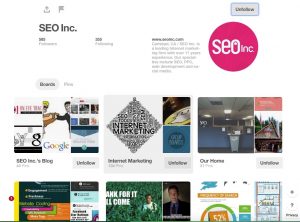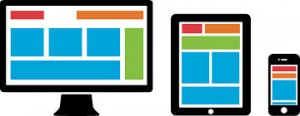
Recently I was asked to predict what forces, industries or businesses would be causing the most business disruption. While it is is hard to really predict what the next big disruption will look like it is possible to see forces at play right now that are going to have a major impact on the way businesses are run.
1 – When your data becomes your data
What is happening with the vast amounts of data we are creating on a daily basis? The average person has bank cards, credit cards, social media accounts, loyalty cards, and smart phones all of which can create a detailed picture of that person – a picture that should be able to make our lives better.
Imagine a world where all of your data was in one place and it was used to help you. Arrive in hospital with a fever and the doctors could instantly see every place you have been, everything you have eaten and every person you have interacted with. Not only could they diagnose you quickly and accurately but they may be able to stop a pandemic before it started.
Currently companies view the data they have about you as their property. And this means that all the data you create can’t work together effectively. There is a new type of technology company emerging that is addressing this issue. It is being loosely tied together by the term VRM, which stands for Vendor Relationship Management – the opposite of CRM. VRM technologies work on the principle that all the data a consumer creates is far more valuable if it is held in one spot, and that spot should be controlled by the consumer that created. It has taken a while to arrive at this point, but the world is now poised for a massive leap forward and many of the companies playing in this space will be the ones leading the charge.
2 – Software writing software – Artificial Intelligence starts to automate the knowledge economy
The different disciplines within the field of Artificial Intelligence (including Machine Learning where software adapts to new situations and recognises patterns, and Automated Reasoning where software uses stored knowledge to draw conclusions) are quickly maturing and evolving. In the very near future these systems will be able to write software programs of their own, and that will enable them to evolve to a point where they can take on many of today’s ‘knowledge’ based jobs.
Research conducted by Oxford University suggests that 45% of all current jobs will be automated in the next 15 – 20 years. This will include professions like medicine, marketing, finance, software development and many others. That same research also suggests that it is very unlikely that the creation of new jobs will match the erosion of old jobs.
What will people do with all of this new spare time they have on their hands? What will happen to the world when so many jobs that comprise repetitive tasks are able to be automated? How will business evolve when it takes far less human and financial capital to meet the needs of their markets and customers?
Based on our experience of the last decade, as receptive tasks become automated more time can be spent on creative jobs. We can expect the pace of innovation to explode and whole new industries to be developed.
3 – Data utilisation – When data stops being about analytics and becomes the product
Over the next two to four years companies will start to really examine the massive volumes of data they have been storing over the last decade or so. Currently the tools for data storage and analysis (commonly grouped together within the term “big-data”) are becoming far cheaper and more commonplace. As companies get more comfortable with viewing the insights that come from massive data sets the next stage in data utilisation will pick up steam.
The data that organisations are storing about their customers and networks is currently being used to develop customer insights. It will soon move to becoming the raw material for generating revenue. This doesn’t mean such organisations be selling the data, as this would degrade its value almost immediately. Instead companies will design new products and services that allow their customers to make use of the data they have created.
The banking and finance industry is an example of an industry that is already well down this pathway. Insurance companies can now use data to provide a more tailored package. Track your driving behaviour and auto insurers can offer you a package that suits your exact risk profile. Health insurers can now offer incentives for healthier behaviours tracked through mobile phones and fitness trackers like FitBit. It’s not a great leap to expect a banking app that helps you stick to a budget by helping you make better financial decisions in real time.
Expect the next generation of digital experiences that brands offer up to their customers to be come much, much smarter.
4 – The “all in” digital company – new business models that will eat the world
In February 2015 Gartner published the results of survey that analysed the effects of the “connect Economy”. The survey showed that 89% of the companies surveyed by Gartner believe that customer experience will be their primary basis for competition by 2016.
Although many companies have been slow to adapt to the changing environment,the period of being “nervously immobile” has come to and end. There are a number of companies which are already going “all in” – integrating the customer experience through scalable, digital solutions.
The pace of change is making many business leaders nervous that they will be unable to keep up.But the more courageous companies are reforming their companies to make the most of new opportunities. These companies are doing more than just replacing one form of marketing with digital techniques .They are looking for completely new ways of interacting with their customers, and developing new business models in the process.
The first wave of “digital disruption” was owned by the silicon valley startup. The next wave may well be owned by big brands who start acting more like venture capitalists than monolithic organisations looking for investments within their market.
5 – Chief Digital Officers – The role that is changing every aspect of business
The digital revolution is already generating “internal disruption” within many firms and will soon produce organisational change. It will take the shape of a new senior management position with an entirely new role and dedicated resources.. That person will be the Chief Digital Officer (CDO).
Last year Forrester research told us that 39% of CEOs believe that they personally set digital strategy for their firms, but only 26% of their direct reports from within the executive team believe that is so( that their CEO actually does own digital strategy). With the ever increasing importance of digital in everyone’s lives it is clear that many organisations will require someone at the senior management level to lead the charge on digital.
It is possible that the current CIO or CMO roles evolve into the CDO. But it is equally likely that this will not happen. Companies are rapidly shifting away from maintaining operational systems to implementing the digital capabilities that attract, convert, serve, and retain customers. This suggests that the role of CDO will need to have influence over marketing, technology, strategy, customer insights and product development. In short they will be at the pointy end of total business transformation.
(195)







